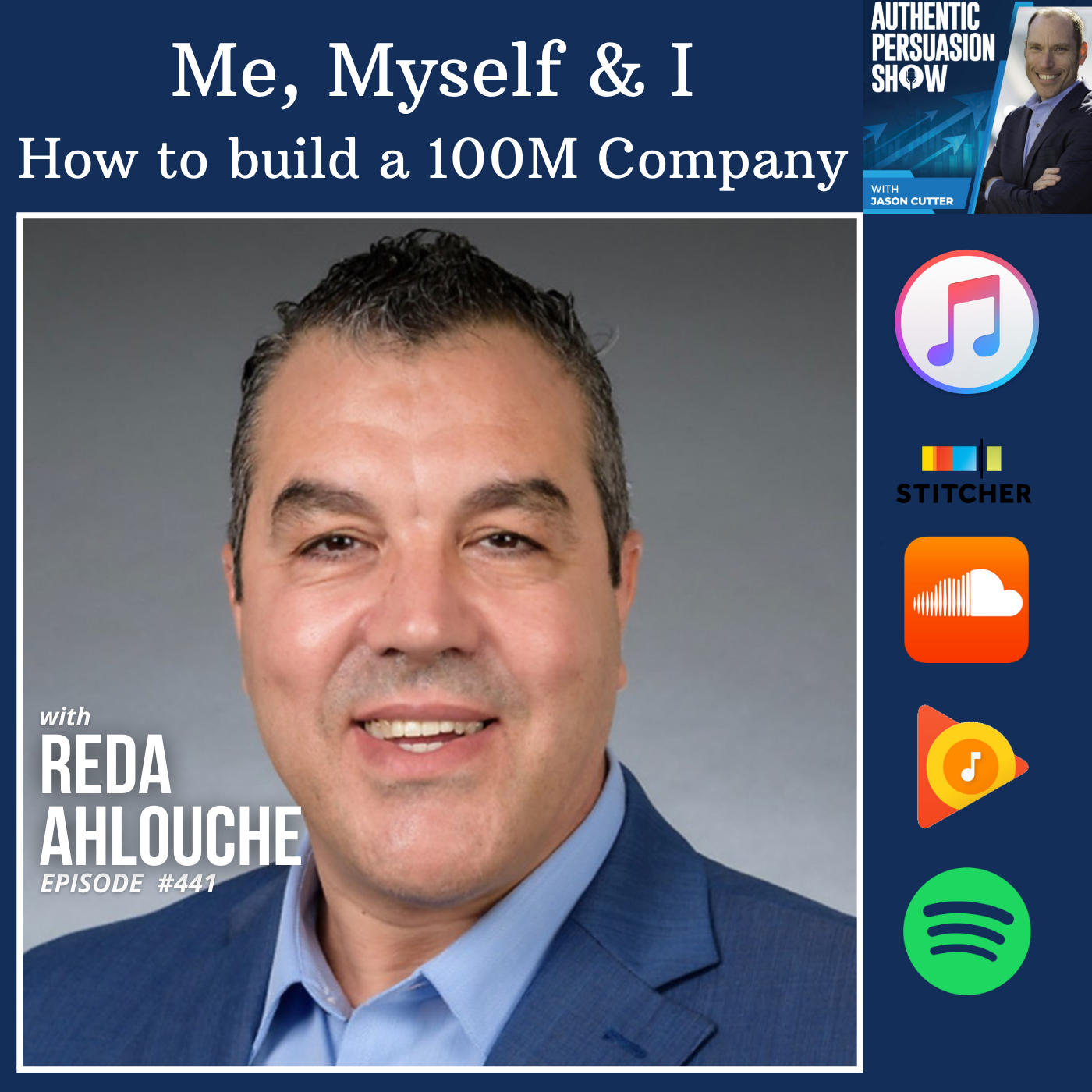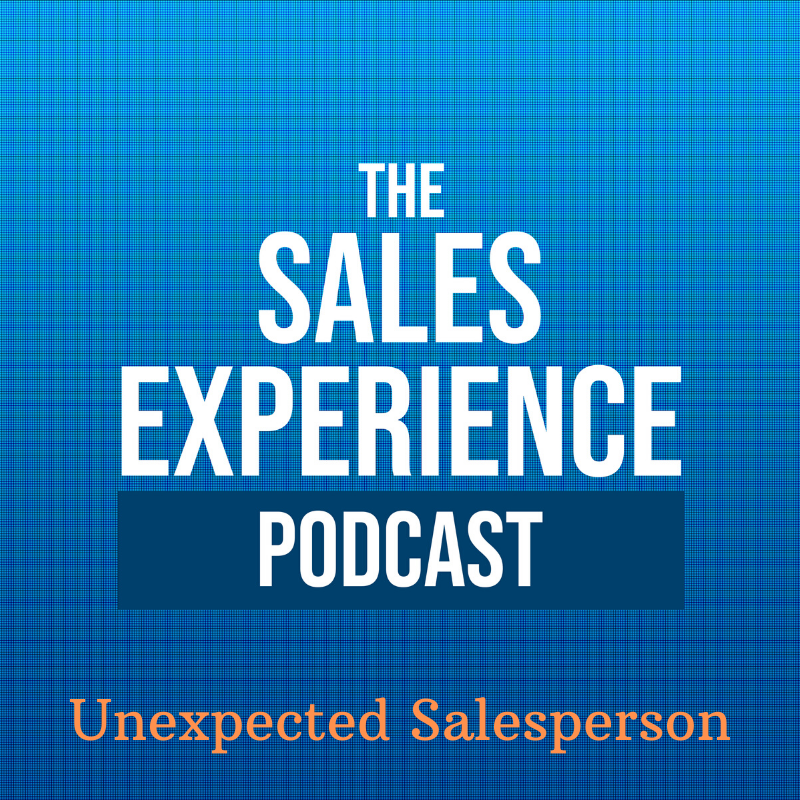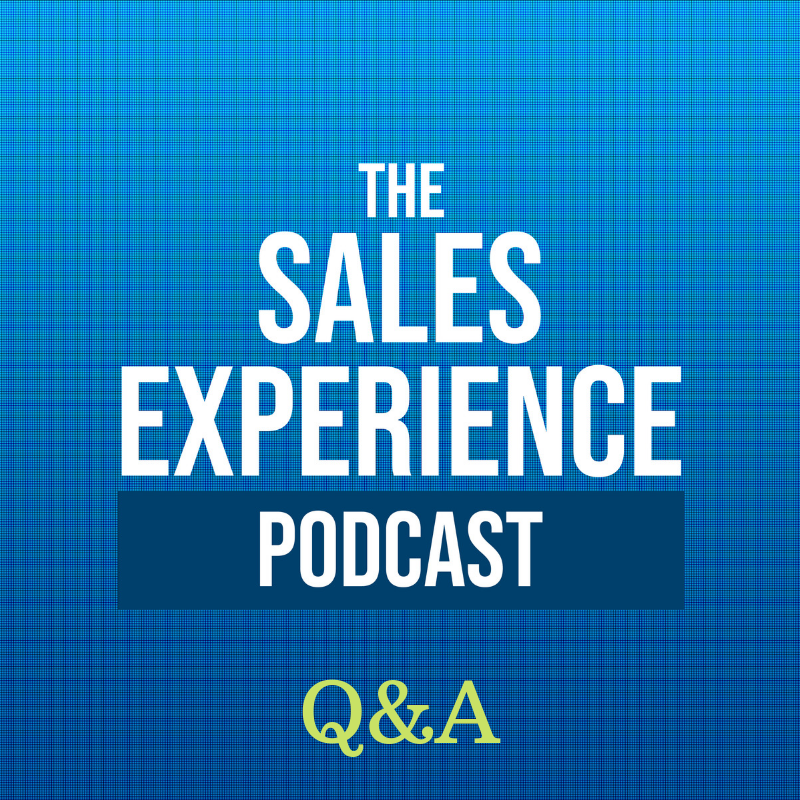Show Notes
Professional athletes, actors, and performers all do it. But most people salespeople don’t. And so many sales managers miss the opportunity to utilize it for the team’s success.
No one likes listening to a recording of themselves talking, but if you are in a sales role it is critical that you ‘watch film’ of your sales interactions. Whether you work in a call center sales environment or at a car dealership, find a way to access recordings of your conversations with prospects.
In this episode I talk about why that is so important, and which conversations to focus on.
Links for this episode:
Article: A Former Player’s Perspective on Film Study and Preparing for an NFL Game
Article: Watching Video is Great Mental Training for Athletes
Articles: On stopping the filler words. This one, and this one, and this one. If you find yourself stumbling over words, read this one.
Episode 9 – Transcript
Welcome to Episode 9 of The Sales Experience Podcast. My name is Jason Cutter and my goal is to be your guide on a strategic and at times, brutally honest, adventure with the goal of helping you create a professional sales career in which the experience you provide your prospects turns them into clients for life and gives you everything you want in life. I talked about that in Episode #5 and the Zig Ziglar quote that I love and do my best to live by – especially when selling.
This week has been all about mindset with a focus on you the salesperson or sales leader. While I could have made a whole podcast series out of just mindset, and we could have started by talking about what happened to you as a child, I think there is a lot of that type help there already.
You are here to learn about creating your sales experience, so this stop at mindset town is designed to be brief but impactful for the rest of our journey together.
I am calling this episode Watching Film. Not because I want you to sit around and watch sales movies all day – although there are some good things you can learn from movies, and also some really bad sales stuff you could pick up and think would work long term.
I am referring to the practice of watching game day film that athletes do. For professional athletes and teams, they have dedicated staff that takes the video of each game and will break it down into the plays that each player was in, the plays that worked well and the ones that didn’t.
To prepare for the next team they are playing against they will go back and watch their last game against them to see what worked and didn’t. Between watching film, working out, and practicing – the game that you see being played is roughly only 10% of the athlete’s time spent.
Why do they watch ‘film’? And yes, I know its not on film any more…that’s just what us older people still call it. Why should you watch film of your sales interactions? Because one of the fun traits of us humans is that we only see the world through our perspective, through our own eyes and ears. We see what we see.
Our brain’s mission, like I have been talking about this week, is about survival and safety. Its about taking in what it thinks is important. It’s about only allowing in what it thinks is important. It can’t let everything in that occurs around us – because there is just so much going on.
If your brain focused on every single word being said all the time in every conversation and tried to remember it all – your head would explode. And as far as the brain is concerned, most of what happens is not important to survival. So it just doesn’t care to pay attention.
That is why people who have verbal ticks don’t realize it unless someone points it out or they hear a recording of themselves. We have all met someone who ends almost every sentence with ‘…you know?’
When I talk to someone like that for very long, I will start responding with ‘no, I don’t know!’ Or someone who says ‘like’ all the time, or ‘um’ or ‘uh’ or ‘so’. I know that I am guilty of all of those and do my best to cut them out when I notice them. But it’s hard.
The reason we do these things is either a habit that is formed or most likely our mouth is moving faster than our brain. If you slow down when talking, think more, you will sound clearer and more concise. But to get to that point you first must realize what you are doing.
That is where listening to your sales presentations or calls comes in. It will give you a chance to hear or see what worked and what didn’t work.
Now I know what you are going to say…and yes – pretty much everyone hates hearing their own voice being played back. But its super important for your sales success.
If you are a salesperson in a call center where the calls are recorded, get with your manager regularly to listen to your calls and get feedback. This might be hard to ask for and might feel brutal to listen to. I get it.
That’s why I have been building up to this all week – talking about mindset. Remember, only if you are open and willing will you win at sales, and in my opinion, in life.
If you are in a non-phone sales role – car sales, insurance, or whatever – if there is a way, record your sales presentations and conversations. This way you can listen to them later, and even have your manager listen in.
If you are a sales leader, do whatever you can to give your reps access to their sales recordings.
And the key is not just going straight to the bad calls or conversations. The reaction by most people is they want to see why they failed to close that deal. That is a great place to start…because you might learn what you did that was ineffective and how to change for next time.
But I have always recommended listening to the recordings from when you closed the sale. Not to pat yourself on the back and listen to how awesome you were, but to listen in and take note of worked. There was something in that conversation that was effective. Something between what you said, what the prospect said, and how things went that moved them to being a client. Always study the wins so you can reinforce the good things you have shown worked for you as a salesperson.
Something between what you said, what the prospect said, and how things went that moved them to being a client. Always study the wins so you can reinforce the good things you have shown worked for you as a salesperson.
That’s it for this episode. Now go out and watch some game film, find here you are winning in the sales experience you are creating and where you can improve. Until next time, always remember that everything in life is sales and people will remember the experience you gave them.
![[E9] Mindset Week: Watching Film](https://episodes.castos.com/salesexperiencepodcast/images/TSEP-Cover-Mindset-Week.png)


